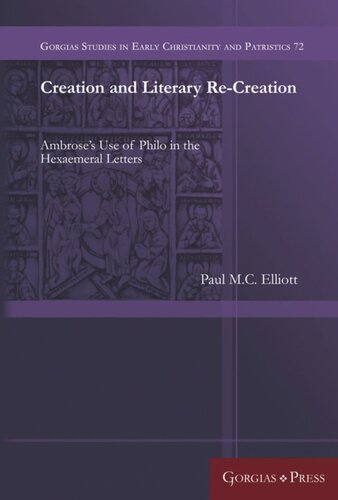

Most ebook files are in PDF format, so you can easily read them using various software such as Foxit Reader or directly on the Google Chrome browser.
Some ebook files are released by publishers in other formats such as .awz, .mobi, .epub, .fb2, etc. You may need to install specific software to read these formats on mobile/PC, such as Calibre.
Please read the tutorial at this link: https://ebookbell.com/faq
We offer FREE conversion to the popular formats you request; however, this may take some time. Therefore, right after payment, please email us, and we will try to provide the service as quickly as possible.
For some exceptional file formats or broken links (if any), please refrain from opening any disputes. Instead, email us first, and we will try to assist within a maximum of 6 hours.
EbookBell Team

4.4
72 reviewsOne of the distinctive characteristics of the writings of Ambrose of Milan is his frequent and lengthy borrowings from the works of Philo of Alexandria. He treated the 1st-century Jewish philosopher as an authoritative predecessor and made use of his works to a far greater extent than any other Church Father did. This study seeks to fill a lacuna in the current scholarship by investigating Ambrose’s use of Philo in his collection of letters, focusing on a set of three letters concerning the topic of the Genesis creation account (Ep. 29, 31, & 34 [PL#43, 44, & 45]). In all three cases, Ambrose fielded questions on the Six Days of Creation (Hexaemeron) by drawing upon Philo’s treatise De opificio mundi. Each of these letters is undeniably Philonic and yet uniquely Ambrosian. This study seeks to clarify why Ambrose found Philo to be particularly valuable in spite of his Jewishness and also to investigate how Ambrose interpreted, adapted, and ultimately re-created his source.